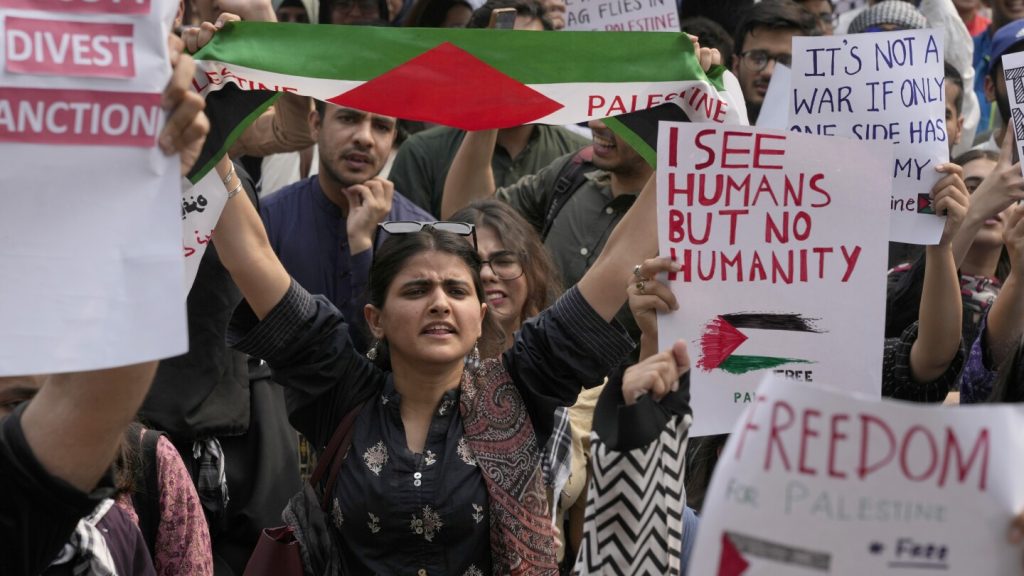The police in Islamabad, Pakistan prevented a pro-Palestinian rally by a radical Islamist party from moving towards the U.S. Embassy, where demonstrators intended to protest Israel’s strikes in Gaza. The police used batons on the demonstrators, causing anger among the rallygoers who briefly blocked a key road and later staged a sit-in near a high-security area where foreign embassies and government offices are located. Students from the Jamaat-e-Islami Pakistan party claimed they were beaten by police and were not allowed to proceed towards the American embassy for a peaceful rally. Despite the police intervention, demonstrators held banners and posters denouncing Israel and the United States and expressing their support for the Palestinians. Organizers of the rally vowed to continue raising their voices for the Palestinians.
The rally in Islamabad comes amidst ongoing violence in Gaza, where Israeli airstrikes have killed hundreds of Palestinians, including women and children. The situation has drawn international condemnation and calls for an immediate ceasefire to prevent further loss of life. The rally in Pakistan reflects a growing sentiment of solidarity with the Palestinian cause among certain segments of the population, particularly from religious and nationalist groups. The use of force by the police to disperse the demonstrators highlights the challenges faced by those advocating for the rights of Palestinians in a country where the government maintains close ties with the United States and Israel.
The tension between the protesters and the police underscores the complexities of navigating the delicate geopolitical dynamics in the region. Pakistan has historically supported the Palestinian cause and has often criticized Israel’s actions in the occupied territories. However, the government also maintains diplomatic relations with Israel’s allies, including the United States, which presents a delicate balancing act for Pakistani authorities. The crackdown on the rally by the police may be seen as an attempt to prevent escalation of tensions and maintain order in the capital, but it also risks fueling resentment and further polarizing public opinion on the issue.
The international community, including the United Nations and various human rights organizations, has called for a peaceful resolution to the conflict in Gaza and urged all parties to uphold international law and respect the rights of civilians. The violence in the region has caused immense suffering and loss of life, with children being disproportionately affected by the hostilities. The rally in Islamabad reflects a wider global solidarity movement in support of the Palestinian people and their struggle for self-determination and justice. It also highlights the challenges of advocating for justice and human rights in contexts where political interests and alliances often take precedence over moral and ethical considerations.
As the sit-in near the high-security area in Islamabad continues, the demonstrators remain resolute in their demand for justice and accountability for the atrocities committed against Palestinians. The rally represents a grassroots movement that is pushing for concrete actions to address the root causes of the conflict and to hold those responsible for human rights violations to account. The use of social media to document and share the events of the rally underscores the power of technology in amplifying voices and raising awareness about injustices around the world. Despite the challenges and obstacles faced by the protesters, their determination to stand in solidarity with the oppressed and marginalized communities sends a powerful message of hope and resilience in the face of adversity.


